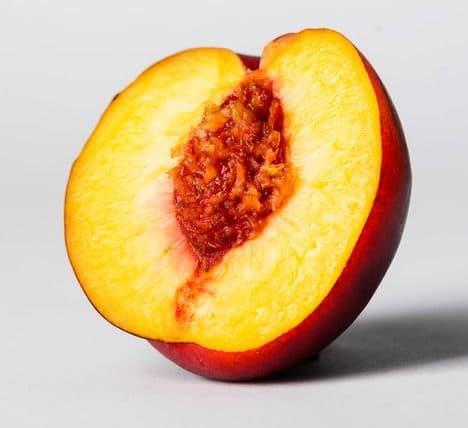

Metabolic Syndrome is an amalgamation of co-existing morbidities including, hypertension, insulin resistance/glucose intolerance, high cholesterol and chronic systemic inflammation. These individual conditions, when combined, magnify the risk for western society’s primary health threat – heart disease. Conventional medicine, of course, has therapeutic modalities – primarily pharmaceutical – to treat all of these problems individually. The drawback to medical management of these conditions is its focus on treating the symptoms instead of the cause and the negative health effects associated with the medicines used.
Thankfully, nature’s pharmacopoeia provides us with a food that acts as a management tool and a corrective therapy for this deadly condition. A recently published study presented to the American Chemical Society demonstrated that certain chemical compounds in peaches and other stone fruits provide a multi-pronged approach to effective treatment of metabolic syndrome. According to the author of the study, Dr. Luis Cisneros-Zevallos, peaches “have a mixture of bioactive compounds that address different components of the disease.” He states that the four major phenolic groups – anthocyanins, chlorogenic acids, quercetin derivatives and catechins – “work simultaneously on different fronts against the components of the disease, including obesity, inflammation, diabetes, and cardiovascular disease.”
It comes as no surprise that this study shows the presence of chemicals in peaches that have a curative effect upon the human body in addition to their nutritional value. Science continually confirms the healing components that exist in the food we eat. While it is wonderful to learn exactly what nutrients in the peach can heal us and how they do it, this information should come with the disclaimer that peaches alone are not going to cure metabolic syndrome.
By all means, adding peaches (and plenty of them) into your diet is a great idea, but don’t expect any major improvement in your condition unless and until the lifestyle issues that brought on the disease in the first place are discontinued and replaced with healthier habits. Minus the elimination or drastic reduction of processed foods and sugary drinks and the introduction of regular vigorous exercise into your daily life, a bushel of peaches a day will not undo the harm of the nutritional cataclysm that is the average American diet.
Having said that, I will admit to feeling real excitement when I see results such as those published by Dr. Cisneros-Zevallos. When research provides physicians, nutritionists and fitness professionals with confirmatory information such as this it provides yet another tool in the box for educating and informing our patients and clients. It also educates us about what is behind the amazing results we see in the field. Because, on a practical level, we already know that fresh whole foods prepared at home combined with regular exercise can bring about dramatic change for many diseases and conditions. Now we know a little bit more about why this is happening.
All this wonderful news notwithstanding, there is a caveat. The beneficial effects of eating peaches and other stone fruits presupposes that one is eating them fresh and minus the pie crust sugar and vanilla ice cream. I enjoy a good cobbler as well as the next person, but a beautiful food such as the peach was meant to be eaten, most of the time, fresh and raw. Try it. Get a firm grip in one hand, take one bite at a time, until all you’ve got left is the pit nestled gently between your gums and teeth, releasing its last molecules of natural flavor to your happy tastebuds. This is real medicine, the way nature intended.




